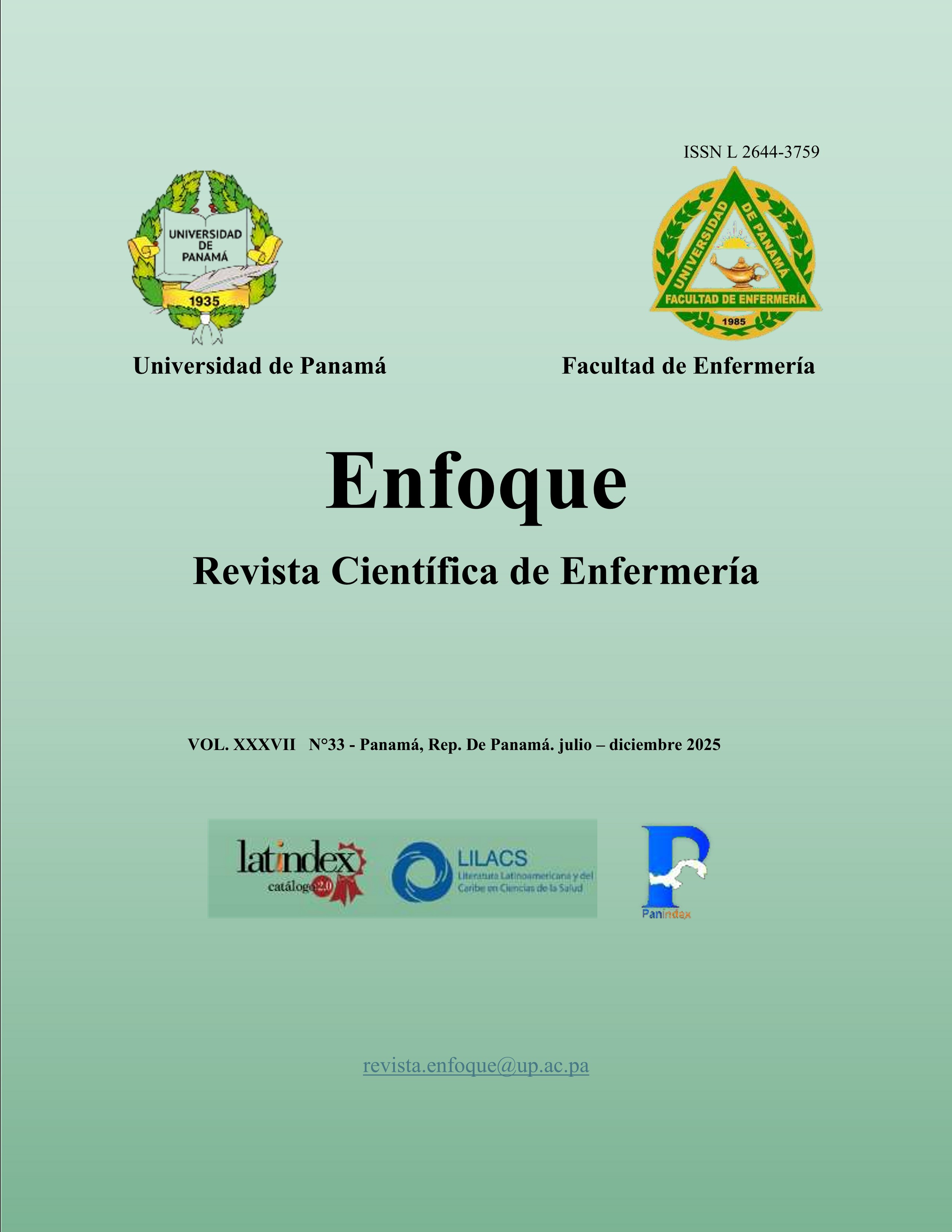

Copyright (c) 2025 Enfoque

This work is licensed under a Creative Commons Attribution-NonCommercial-ShareAlike 4.0 International License.
Nowadays, older adults are active agents, capable of making decisions, managing their lives, and ensuring an optimal state of well-being. The study aimed to evaluate the relationship between quality of life and the adaptation of healthy habits in older adults in the community of Villa Carmen, Capira.
A quantitative, descriptive correlational, and cross-sectional approach, based on a structured survey administered to 50 older adults selected through non-probabilistic sampling, was used. The instrument, validated by Cronbach's alpha (0.700) and Friedman's test, allowed the analysis of dimensions such as physical health, emotional well-being, healthy habits, and access to resources. The results showed a moderate correlation between emotional well-being and physical health (r = 0.57), as well as with the social-emotional component (r = 0.55). The regression model explained 26.3% of the variability in quality of life, confirming a significant relationship with healthy habits (p<0.001). It determined that older adults who maintained light physical activity and a balanced diet reported greater autonomy; meanwhile, those with sedentary lifestyles, chronic diseases, and social isolation were negatively affected. The conclusions highlight the importance of promoting healthy lifestyles and strengthening support networks to improve the well-being of this population. The study provides valuable information for designing comprehensive community strategies to promote adapted physical activity, nutritional education, and emotional care. Likewise, the study recommends improving access to inclusive health services and establishing preventive programs aimed at active and healthy aging.